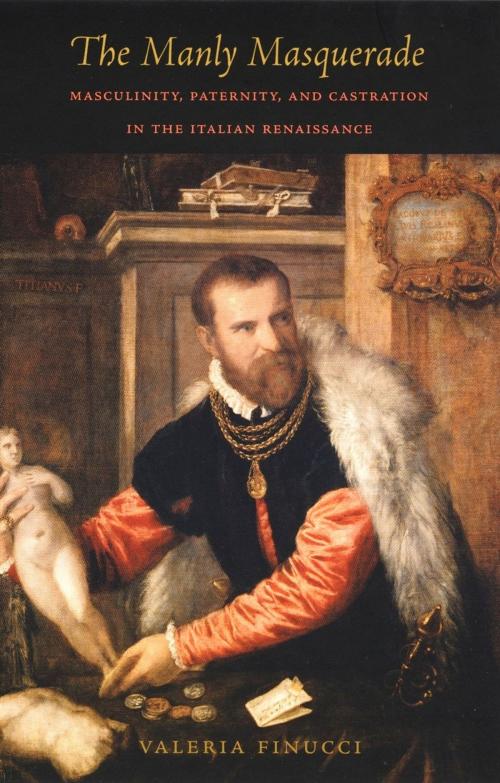The Manly Masquerade
Masculinity, Paternity, and Castration in the Italian Renaissance
Nonfiction, Social & Cultural Studies, Social Science, Gender Studies, Men&, History, Italy| Author: | Valeria Finucci | ISBN: | 9780822384472 |
| Publisher: | Duke University Press | Publication: | March 19, 2003 |
| Imprint: | Duke University Press Books | Language: | English |
| Author: | Valeria Finucci |
| ISBN: | 9780822384472 |
| Publisher: | Duke University Press |
| Publication: | March 19, 2003 |
| Imprint: | Duke University Press Books |
| Language: | English |
The Manly Masquerade unravels the complex ways men were defined as men in Renaissance Italy through readings of a vast array of sixteenth- and seventeenth-century evidence: medical and travel literature; theology; law; myth; conduct books; and plays, chivalric romances, and novellas by authors including Machiavelli, Tasso, and Ariosto. Valeria Finucci shows how ideas of masculinity were formed in the midst of acute anxiety about paternity by highlighting the beliefs—widely held at the time—that conception could occur without a paternal imprimatur or through a woman’s encounter with an animal, or even that a pregnant woman’s imagination could erase the father’s "signature" from the fetus. Against these visions of reproduction gone awry, Finucci looks at how concepts of masculinity were tied to issues of paternity through social standing, legal matters, and inheritance practices.
Highlighting the fissures running through Italian Renaissance ideas of manliness, Finucci describes how, alongside pervasive images of the virile, sexually active man, early modern Italian culture recognized the existence of hermaphrodites and started to experiment with a new kind of sexuality by manufacturing a non-man: the castrato. Following the creation ofcastrati, the Church forbade the marriage of all non-procreative men, and, in this move, Finucci identifies a powerful legitimation of the view that what makes men is not the possession of male organs or the ability to have sex, but the capability to father. Through analysis, anecdote, and rich cultural description, The Manly Masquerade exposes the "real" early modern man: the paterfamilias.
The Manly Masquerade unravels the complex ways men were defined as men in Renaissance Italy through readings of a vast array of sixteenth- and seventeenth-century evidence: medical and travel literature; theology; law; myth; conduct books; and plays, chivalric romances, and novellas by authors including Machiavelli, Tasso, and Ariosto. Valeria Finucci shows how ideas of masculinity were formed in the midst of acute anxiety about paternity by highlighting the beliefs—widely held at the time—that conception could occur without a paternal imprimatur or through a woman’s encounter with an animal, or even that a pregnant woman’s imagination could erase the father’s "signature" from the fetus. Against these visions of reproduction gone awry, Finucci looks at how concepts of masculinity were tied to issues of paternity through social standing, legal matters, and inheritance practices.
Highlighting the fissures running through Italian Renaissance ideas of manliness, Finucci describes how, alongside pervasive images of the virile, sexually active man, early modern Italian culture recognized the existence of hermaphrodites and started to experiment with a new kind of sexuality by manufacturing a non-man: the castrato. Following the creation ofcastrati, the Church forbade the marriage of all non-procreative men, and, in this move, Finucci identifies a powerful legitimation of the view that what makes men is not the possession of male organs or the ability to have sex, but the capability to father. Through analysis, anecdote, and rich cultural description, The Manly Masquerade exposes the "real" early modern man: the paterfamilias.















